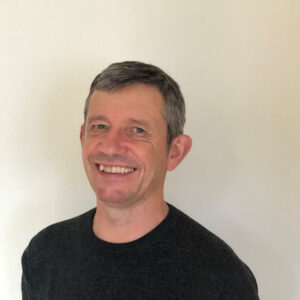My career story: Alec Waterhouse

Job title and department or organisation
Alec is Deputy Director for Energy Infrastructure and Market Analysis at the Department for Energy, Strategy and Net Zero. His role matches the role of Analytical Deputy Director on the Analysis Function Career Framework.
Grade
Alec works at Senior Civil Service 1 (SCS1) level.
Profession and entry route
Alec is a member of the Government Operational Research Service (GORS).
Alec entered the Civil Service at Grade 7 level through mainstream profession recruitment.
Alec’s career path
After achieving my BSc in Engineering at University, I started off as an engineer for British Gas, replacing old cast iron gas mains. I wanted to do something that was more intellectually challenging, which is when I came across Operational Research (OR). I worked across a range of engineering projects within British Gas which was my first OR role.
I then moved companies to the Post Office. I worked on a range of projects like demand forecasting, customer surveys, and stock control. After a few years I moved onto a role in logistics at the Post Office, which I did not enjoy for reasons other than the analytical work. But my logistics experience helped me to move to an OR role at Debenhams, where I was involved in projects about store location, customer understanding, and stock control. In today’s world much of what I did analytically would now be labelled as data and behavioural science!
In 2000 I joined the Civil Service working for the Department for Trade and Industry as a Grade 7 Operational Researcher. Amongst other things, I worked on surveys for overseas trade projects and it was my first staff management role.
In 2003 I moved to Inland Revenue as a Grade 6 before taking on a Deputy Director role in HMRC in 2007, staying in Operational Research roles. I did a lot of work on:
- setting up call centres
- moving away from letter communication to calls
- forecasting
In 2009, I changed roles to Programme Management in HMRC, where I set up a performance measurement system for the top of department.
I became the Head of Data Integrity at HMRC in 2011. I was responsible for personal taxes, working on data quality projects. I then joined the Department for Energy and Climate Change (DECC) in 2013 as Head of Modelling. During my time here I was temporarily promoted to Director of Analysis. I moved to the Department for Business, Energy, and Infrastructure (BEIS) in 2017 as Head of Modelling (SCS1), and I had another temporary promotion opportunity to Director of Analysis. I am now the Deputy Director for Energy Infrastructure and Market Analysis at the Department for Energy, Security and Net Zero (DESNZ) which was formerly BEIS.
I have had a couple of temporary promotion opportunities to Director. Being involved in every piece of analysis which happens across a huge department is an interesting experience.
The flowchart shows Alec’s career progression from achieving his university agree to his current role as Deputy Director. It shows the step-by-step journey Alec has taken across departments and grades to achieve his current grade and experience. Enlarge the flowchart.
I try to help organisations to make better decisions on more effective use of resources. Some projects I am currently involved in are:
- the Sizewell C business case
- the business case for Smart Modular Reactors
- Electric Vehicle Network requirements
- transmission — modelling transmission generation systems out to 2060 and beyond
- the Biomass Policy for UK energy
I am also in charge of a research programme with £2 million to spend on research.
I want to continue in my current grade and continue to enjoy the work I do.
I was proud to be part of the team that provided the supporting analysis underpinning our nation’s decision to change our decarbonisation target to net-zero by 2050.
My greatest challenge is to identify what “good” looks like in a customer’s eyes and help them to understand what they really want in a way that is meaningful to both them and us.
Alec’s advice
If someone wanted to be a good operational researcher then it helps to be numerate, logical, curious, customer oriented, and willing to learn new things. Operational research is a very broad field. There is always something new to learn and always a way to use it to help customers. The trick is finding out what your customers want and what you can do!
Also, I would recommend taking up an apprenticeship or some continuous study to learn more about the area of work you are in. If you’re unsure whether a job role is right for you, a secondment opportunity can be a great way of trying something different before you fully commit to making a change.
This career story was published on Tuesday 1 August 2023.
